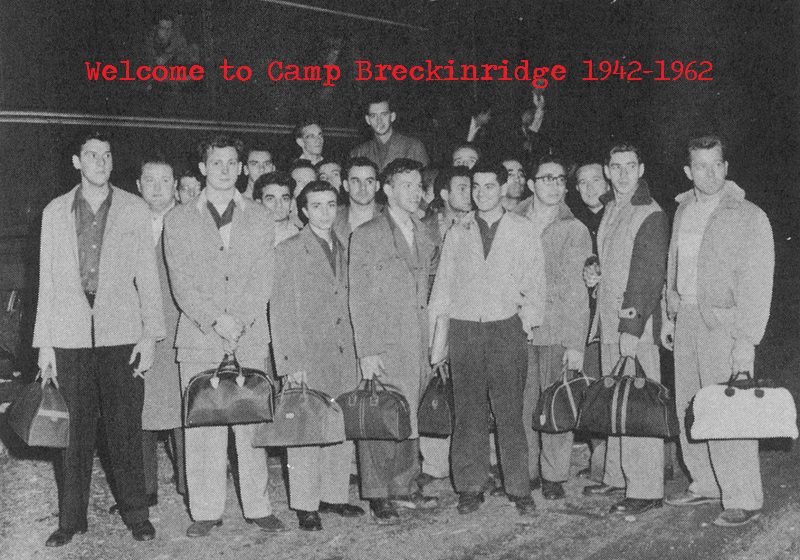
Used with permission by Mr.Spence Toll.
Human cost of WWII still sears 68 years later…
Seymour I. ‘Spence’ Toll is a Philadelphia lawyer and author.
Some personal experiences can seize one’s spirit so powerfully that they are never forgotten, even if, like me, one is groping through the memory mist of old age. The personal experience I have in mind has been a recurring memory for 68 years. It not only crosses my mind each day, but possesses me for much of every Dec. 16.
At dawn on that day in 1944, more than 200,000 German troops, supported by nearly 1,000 tanks, began the Battle of the Bulge. They attacked 75,000 American soldiers defending an 80-mile front in the Ardennes forest of Luxembourg and Belgium that bordered Germany. It became the U.S. Army’s largest land battle of World War II.
On that first day of battle, I was an ordinary combat infantryman who had recently been assigned to the 28th Infantry Division as a replacement for one of its casualties. The temperature was 14 degrees. We were so nearly blinded by the dense fog blanketing the battlefield that combat was ghostly – a life-and-death struggle with a disembodied foe.
We could hear enemy rifle and cannon fire, and voices shouting in German, but rarely did we see who was doing that shooting and shouting. Yet the enemy troops and weapons that seemed invisible were, throughout the day, wounding and killing our men.
On the first night of the battle, we survivors in what had been our 12-man rifle squad took cover in a forest overlooking a snowbound valley. After several hours ducking – and freezing in Army clothing meant for temperate climates – we began hearing “screaming meemies” (rocket mortar shells) and their lethal “marching fire” as they crossed the valley toward us. While we knew exactly what was coming, we were helpless in the face of what seemed our imminent and inevitable destruction.
Through the foggy darkness we heard, then finally saw, flashes of exploding shells. First they were atop the valley slope and then were tearing into our woods. Cries of my nearby squad mates who took the first hits pierced even deeper than the screaming of the rockets. The deadly fire reached me after I had “assumed the prone position” – as we learned to call it in infantry basic training.
While I was belly-down in the frozen earth, with arms crossed above my head as if in folded plea, flaming shrapnel from a rocket shell ripped into my upturned right forearm. Although fate had a perfect opportunity, it refused to end my life. As a result of its arbitrariness, I was wounded, but several squad members who deserved to live as much as I were killed.
What made that combat experience unforgettable was, of course, its horror. But it had consequences that turned out to be as heartening and memorable as the day was terrifying. The origin of those consequences was my lifelong gratitude for having been spared death at the age of 19.
That gratitude began very soon after I was wounded, when I was deeply moved while emerging from shock in a war-battered barn that was serving as a first-aid station near the battlefield.
After an Army medic stanched the bleeding and removed some shrapnel from my arm, he lifted the steel helmet from my head to show me shrapnel sticking in the helmet as if it were a pin cushion. Also, sprawled around me on the earthen floor were wounded GIs, as well as German casualties.
That microcosm of war’s human cost made me so thankful that my devoted parents would not be receiving an unbearable Army telegram reporting my death. They and my two younger sisters not only had endless anguish about me in the war in Europe, but about our older brother, who was a naval officer in combat in the Pacific.
After that most horrifying experience in what turned out to be my exceptionally fortunate life, I was evacuated from the battlefield in an Army ambulance that was nearly struck by German cannon fire. My next six months in Army hospitals in Luxembourg, Paris, the Cotswolds, and back home in the States were a time for extensive medical treatment as well as considerable reflection.
As almost seven decades since that combat experience have unfolded, at the peak of that long range of great good fortune has been my wonderful family. Jean, my dear late wife of 48 years, left a priceless legacy for our four precious daughters and their families. “Be kind” was both the theme and reality of Jean’s exemplary life.
Generous, warmhearted friends also have showered us with their cheering affections and sympathetic comforts. A number of those folks have been my generous, good-humored law firm colleagues, as well as fellow trial lawyers, whether courtroom allies or adversaries.
Instead of being destroyed that night of Dec. 16, 1944, the life I was spared has been blessed with the unforgettable kindness of these dear people. It’s as if fate had saved an ideal life for me.
The other memorable consequence of that battle experience is a belief I have shared with millions of fellow veterans of World War II. It’s not rah-rah patriotism, but an essential truth: Despite the passage of many years, I have never forgotten what a privilege and honor it was to serve our great nation in that thoroughly deserving cause.
——————————————————————————–
E-mail Seymour I. “Spence” Toll at spentoll@aol.com.
